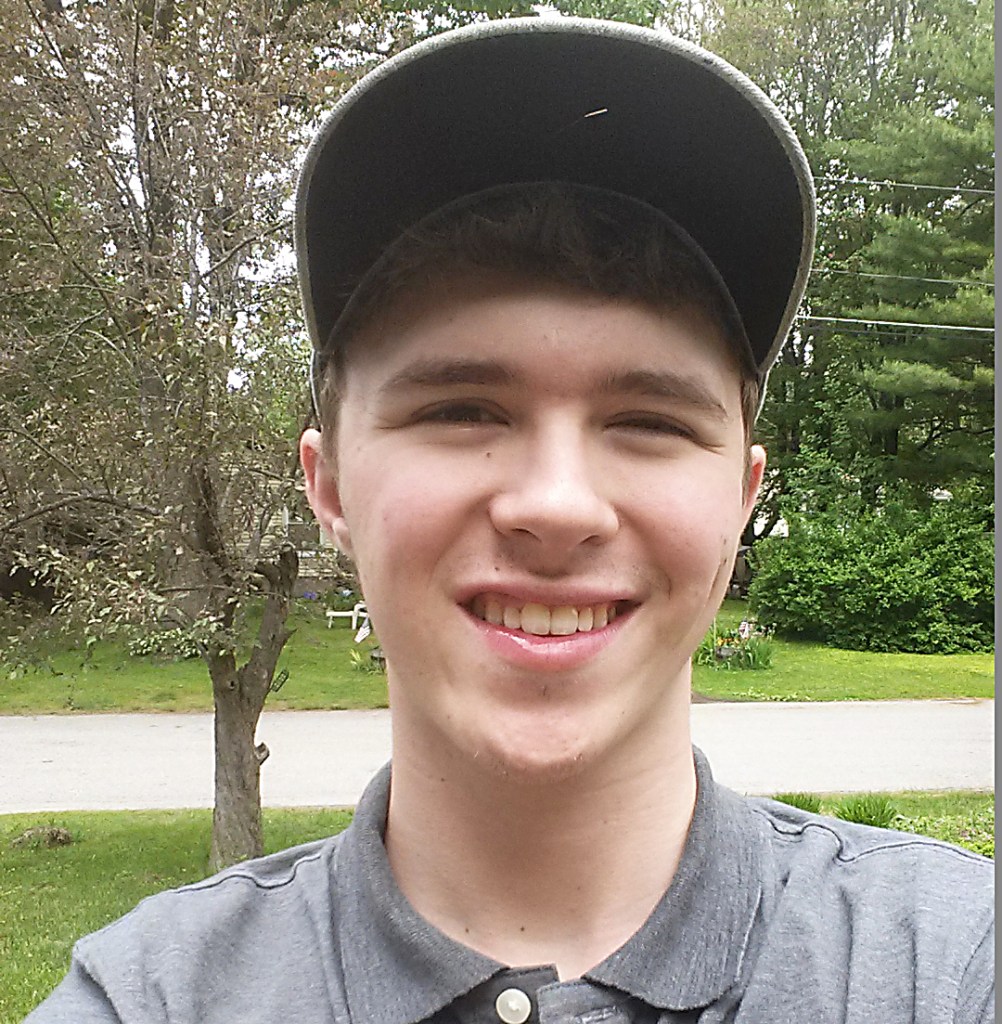Daniel Thompson got lost during one cross-country meet.
He was doing fine, running along roads and across fields, paying close attention for the bright orange cones that marked the course. It was more challenging for Thompson than for most of the runners because he’s legally blind, born with achromatopsia, a severe form of colorblindness that causes extreme light sensitivity and reduces visual acuity.
Eventually, Thompson missed one of the cones, made a wrong turn and wound up off course. He laughs when he tells the story now, as he graduates from Gorham High School, because he has learned not to let small setbacks deter him from long-term success.
“I think it’s funny,” Thompson said. “Why not laugh at yourself? I always consider myself very lucky. I know a lot of people who are completely blind and I have it relatively easy.”
Thompson has excelled despite his disability, using advances in technology to overcome the limits of his eyesight and developing the confidence to advocate for himself when barriers were insurmountable.
A monocular made it possible to see the whiteboard in statistics class, and a MacBook Air allowed him to scan worksheets and convert them to PDFs so he could make the type large enough to read. When chemistry lab assignments required him to discern color changes or take fine measurements, he sought help.
“When you ask for it, teachers are pretty accommodating,” Thompson said.
Thompson, who works part time at the Amato’s in Gorham, pushed beyond the usual high school requirements, taking college-level statistics and English courses at the University of Maine last summer.
“So I have two courses done when I start college in the fall,” he said. “And it was cool coming back to my senior year and having an understanding of what college is like and knowing that I’m prepared.”
Thompson plans to attend the University of Southern Maine and become a clinical psychologist. A therapist helped him overcome bouts of anxiety when he was a child and he’d like to help others overcome similar barriers in their lives.
“I think my experiences have made me a little more empathetic toward others with disabilities,” he said. “I know what it’s like to be different. I understand what they’re going through.”
Copy the Story LinkSend questions/comments to the editors.



Success. Please wait for the page to reload. If the page does not reload within 5 seconds, please refresh the page.
Enter your email and password to access comments.
Hi, to comment on stories you must . This profile is in addition to your subscription and website login.
Already have a commenting profile? .
Invalid username/password.
Please check your email to confirm and complete your registration.
Only subscribers are eligible to post comments. Please subscribe or login first for digital access. Here’s why.
Use the form below to reset your password. When you've submitted your account email, we will send an email with a reset code.